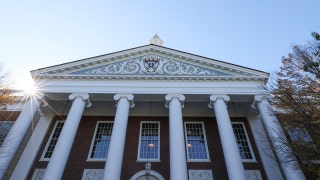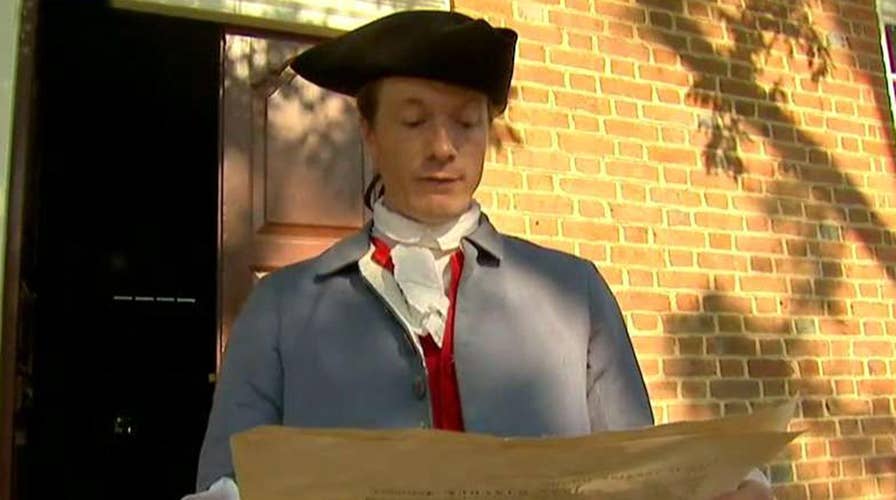The Fourth of July, America’s birthday, may be our country’s most celebrated holiday. But the number of young people who can’t identify the significance and historical facts of this event is alarming.
According to a new Marist Poll, a staggering 42 percent could not identify 1776 as the year America became a free nation. Civic education is no longer a priority in our nation’s schools and it shows.
We cannot expect young people to believe in our democracy, let alone actively participate in it, if we don’t even seek to help them understand it.
JUDGE ANDREW NAPOLITANO: OUR DECLARATION OF INDEPENDENCE AND THE DECISION TO REVOLT AGAINST BRITAIN
Civic education isn’t just teaching young people history. Civic knowledge plays a significant role in a young person’s civic engagement and social mobility as they develop into adulthood. It ultimately reveals how an individual will engage life as a U.S citizen.
More from Opinion
An understanding of civic history not only teaches young people how to be active participants in their nation but also keeps the narrative of our government’s establishment consistent. Furthermore, the history of how our nation became free can never be fully appreciated if it is never fully understood.
How can we expect our students to become active participants in our government if we do not take the time to educate them on civics?
In short, we simply can’t. If we want students to be civically engaged, we must equip them to be.
Not long ago, civic history was a vital component of the education of any young American. Today, it is at the bottom of the totem pole within our educational system. This raises several areas of concern for the future of education and U.S. citizenship.
If we want students to be civically engaged, we must equip them to be.
In the Daedalus article “The Challenges Facing Civic Education,” Kathleen Hall Jamieson wrote, “Specifically, schooling in civics increases knowledge of our system of government and its history and laws; builds students’ confidence in their ability to exercise the prerogatives of citizenship; and increases participation in the community and governments, including voting.”
According to a survey in 2018, the National Assessment of Educational Progress, “Twenty-two percent of eighth-grade students have teachers with primary responsibility for teaching civics to their class.” On average, these students scored better than students who did not have teachers with the primary responsibility of teaching civic education. The number of roles dedicated to teaching civic and government history has dwindled severely.
CLICK HERE TO GET THE OPINION NEWSLETTER
Even as of last year, Danielle Allen at the Washington Post reported, “Over the past few decades, our nation has undergone a significant decline in the provision of civics education. We downshifted from delivering three courses in civics to most high school students in the mid-20th century to now delivering one single-semester course to approximately 85 percent of students, as Michael Rebell points out in his recent book ‘Flunking Democracy.”’
Civics education is more readily available to public schools in upper-income areas. Lower-income districts cannot afford to even teach on the subject, which leaves these students at a disadvantage. Long-term, the lack of priority in civic education will eventually lead to its nonexistence in the system.
If we want young people to increase their knowledge and connection to the nation they call home, if we want them to be active participants in local and national elections, they must be educated on how our society and government were established. An education in civic history should be required and accessible to all students.
CLICK HERE TO GET THE FOX NEWS APP
In the 2016 presidential election, the turnout rate of millennials who voted was roughly 58 percent. Of course, in this upcoming election, there is continual hope that more young people, millennials and Generation Z, will participate.
We would never be able to celebrate Independence Day without the great sacrifices and events that led us to become a free nation. But what will the day mean if we have forgotten those sacrifices and events?








































